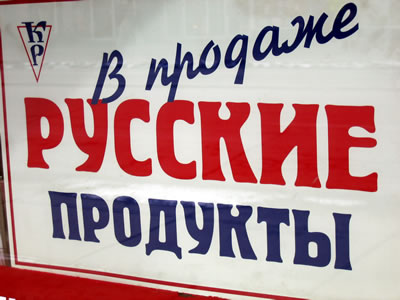Sitting next to me in the Boston subway today was a lady. Her activity represented the biggest turnoff for me next to seeing my name spelled wrong. She was blowing gum bubbles and reading Anna Karenina on her iPhone.
Anna Karenina must be read in print. It is probably one of the world's few books that you need to hold and whose pages you need to list impatiently. Actually, I am taking this back. All of my favorite books--Lolita, A Hero of Our Time and Me Talk Pretty One Day among others--have to be held and listed page by page. I just can't bear to see it happen any other way.
And this is coming from someone who gets all of her information online. Reading BBC news and the Onion is very fulfilling. Yet reading a book that makes you laugh or cry on an electronic device seems unsatisfactory. And unproductive. Mostly, because you can't afford to get the device wet with tears.
Photo Credit: Pensiero
Monday, June 29, 2009
Monday, June 15, 2009
Twitter: Can You Be Popular But Not Mainstream?
I have always aimed at being popular but not mainstream. I want to be part of a growing conversation only when I can add a unique perspective to it. This goal of mine is becoming increasingly difficult with trending topics on Twitter.

Tonight, for instance, everyone is tweeting about the elections in Iran. Keywords #IranElection, Tehran and Iranians made it to the top ten trending topics. I logged on to Twitter and thought about how great that was. It instantly prompted me to get more educated in the issue and before I knew it I was reading BBC articles and simultaneously following the discussions on Twitter.
Election followers were giving their support for the Iranian protesters. They were advising one another to change hashtags not to be tracked by the Iranian government. I felt inspired by the togetherness of the international Internet community.
Half an hour later I looked at the Twitter discussion again. It consisted of the same tweets and, worse, same retweets. Actually, every other tweet was quoting what someone else had said. And then the thought occurred--I could so easily become part of this growing conversation. But I wouldn't add anything to it besides another link to a Boston.com photo or a BBC article. Suddenly, this felt so much like the trending topic about swine flu.
Online users want to feel connected and part of a conversation. I have no doubts about their good intentions to bring positive change. It still inspires me. Yet, as I couldn't see a genuine (and original) discussion about Iran take place, I tweeted my actual current activity--listening to Fun Lovin' Criminals.

Tonight, for instance, everyone is tweeting about the elections in Iran. Keywords #IranElection, Tehran and Iranians made it to the top ten trending topics. I logged on to Twitter and thought about how great that was. It instantly prompted me to get more educated in the issue and before I knew it I was reading BBC articles and simultaneously following the discussions on Twitter.
Election followers were giving their support for the Iranian protesters. They were advising one another to change hashtags not to be tracked by the Iranian government. I felt inspired by the togetherness of the international Internet community.
Half an hour later I looked at the Twitter discussion again. It consisted of the same tweets and, worse, same retweets. Actually, every other tweet was quoting what someone else had said. And then the thought occurred--I could so easily become part of this growing conversation. But I wouldn't add anything to it besides another link to a Boston.com photo or a BBC article. Suddenly, this felt so much like the trending topic about swine flu.
Online users want to feel connected and part of a conversation. I have no doubts about their good intentions to bring positive change. It still inspires me. Yet, as I couldn't see a genuine (and original) discussion about Iran take place, I tweeted my actual current activity--listening to Fun Lovin' Criminals.
Sunday, June 14, 2009
Today: Bazaar, Next Stop: Babushka Deli
If you have ever entered a Russian supermarket in the U.S., you probably know why the whole delivery thing can't work there. No one visits these stores just for the food.

A Russian supermarket is an adventure in itself. In order to enter the space you might have to wait for a couple of minutes at the entrance until the white-haired babushki there finish their chat. Then, as soon as you open the deli's doors, you can hear oldschool tunes--either Russian music from the 80s or some Boney M hits. "Daddy Cool" is what I heard today when I went shopping at Bazaar, one of the several Russian supermarkets in Brighton, Boston.
Black caviar, classic Baltika 3 and kefir stared back at me from the supermarket aisles. Customers also stared back at me in search of signs to reveal whether I was American or Russian. Here, every product, let alone a human, could be a conversation starter. If the Polish cheese, the Czech beer and the Ukrainian flour were all worth paying tons of attention to, so was I.
The cultural immersion wouldn't have been complete without a shelf devoted to authentic Russian cosmetic and pharmacetical products. Just above that shelf were hanging birch branches used for visits to the Russian public banya.
In that Sunday morning, I could buy tree branches to go to the sauna with but I couldn't purchase my Baltika 3 beer. In accordance with state laws, the lady at the cashier said, they couldn't offer beer before 12 p.m. "Massachusetts is very conservative," she said to chase away the surprise in my eyes, and took the beer behind the counter.

A Russian supermarket is an adventure in itself. In order to enter the space you might have to wait for a couple of minutes at the entrance until the white-haired babushki there finish their chat. Then, as soon as you open the deli's doors, you can hear oldschool tunes--either Russian music from the 80s or some Boney M hits. "Daddy Cool" is what I heard today when I went shopping at Bazaar, one of the several Russian supermarkets in Brighton, Boston.
Black caviar, classic Baltika 3 and kefir stared back at me from the supermarket aisles. Customers also stared back at me in search of signs to reveal whether I was American or Russian. Here, every product, let alone a human, could be a conversation starter. If the Polish cheese, the Czech beer and the Ukrainian flour were all worth paying tons of attention to, so was I.
The cultural immersion wouldn't have been complete without a shelf devoted to authentic Russian cosmetic and pharmacetical products. Just above that shelf were hanging birch branches used for visits to the Russian public banya.
In that Sunday morning, I could buy tree branches to go to the sauna with but I couldn't purchase my Baltika 3 beer. In accordance with state laws, the lady at the cashier said, they couldn't offer beer before 12 p.m. "Massachusetts is very conservative," she said to chase away the surprise in my eyes, and took the beer behind the counter.
Labels:
babushka deli,
Boston,
Russian products,
Russian supermarkets
Sunday, June 7, 2009
Sad day for British politics
Apparently, today is a sad day for British politics. That is how Sir Robert Atkins referred to the British National Party's (BNP) success at the EU elections.
Why so? Because the BNP is a far-right party with no non-white members. It won two seats in the EU Parliament at an election whose preliminary figures suggest the lowest turnout ever. In other words, the small percentage of people who cast their votes today supported the BNP's extremism. Wait, that sounds familiar.
The National Union Attack, the far-right party in Bulgaria, has been winning a big percentage of the popular vote. It has openly expressed itself against the rights of Roma minorities. According to Novinite Ataka holds three seats in the 2009 EU Parliament with three far-right deputies elected as MEPs.
Interestingly enough, the 2009 EU elections saw great gains in far-right votes across Europe. According to the Telegraph centre-Right parties constitute the biggest group holding 276 seats out of 736 in the European Parliament. It wasn't just the U.K. and Bulgaria. It was anti-immigrant and far-right groups from the Netherlands, Austria, Hungary, Denmark, Slovakia and Finland.
Not sure about the U.K., but could it be a sad day for EU politics?
Why so? Because the BNP is a far-right party with no non-white members. It won two seats in the EU Parliament at an election whose preliminary figures suggest the lowest turnout ever. In other words, the small percentage of people who cast their votes today supported the BNP's extremism. Wait, that sounds familiar.
The National Union Attack, the far-right party in Bulgaria, has been winning a big percentage of the popular vote. It has openly expressed itself against the rights of Roma minorities. According to Novinite Ataka holds three seats in the 2009 EU Parliament with three far-right deputies elected as MEPs.
Interestingly enough, the 2009 EU elections saw great gains in far-right votes across Europe. According to the Telegraph centre-Right parties constitute the biggest group holding 276 seats out of 736 in the European Parliament. It wasn't just the U.K. and Bulgaria. It was anti-immigrant and far-right groups from the Netherlands, Austria, Hungary, Denmark, Slovakia and Finland.
Not sure about the U.K., but could it be a sad day for EU politics?
Tuesday, June 2, 2009
Auf der anderen Seite
Turkey and the EU--an inexhaustible topic these days. It has started a conversation on which Europe cannot seem to agree. While European nations are still discussing the circumstances around Turkey's potential accession to the European Union, radical Bulgarian politicians already expressed their strong opposition.
In a recent interview Nikola Rachev argued that the Turkish values and religious views are completely incompatible with the European ones. Although 25-year-old Rachev is a student at Sofia's Medical University and speaks three foreign languages, his argument is hardly the most convincing for a well-educated young individual.
Turkey is a modern secular democracy that has been developing at a fast pace. It will, undoubtedly, contribute a diverse perspective to the established EU mosaic. After all, one of the EU's goals is to help make different cultures and values compatible with one another.
Moreover, EU support will mitigate Turkey's political persecutions. The award-winning Auf Der Anderen Seite clearly reveals the need for such type of implementations.
Turkey and the EU--will we exhaust this topic by the next round of EU accession talks?
In a recent interview Nikola Rachev argued that the Turkish values and religious views are completely incompatible with the European ones. Although 25-year-old Rachev is a student at Sofia's Medical University and speaks three foreign languages, his argument is hardly the most convincing for a well-educated young individual.
Turkey is a modern secular democracy that has been developing at a fast pace. It will, undoubtedly, contribute a diverse perspective to the established EU mosaic. After all, one of the EU's goals is to help make different cultures and values compatible with one another.
Moreover, EU support will mitigate Turkey's political persecutions. The award-winning Auf Der Anderen Seite clearly reveals the need for such type of implementations.
Turkey and the EU--will we exhaust this topic by the next round of EU accession talks?
Subscribe to:
Posts (Atom)




